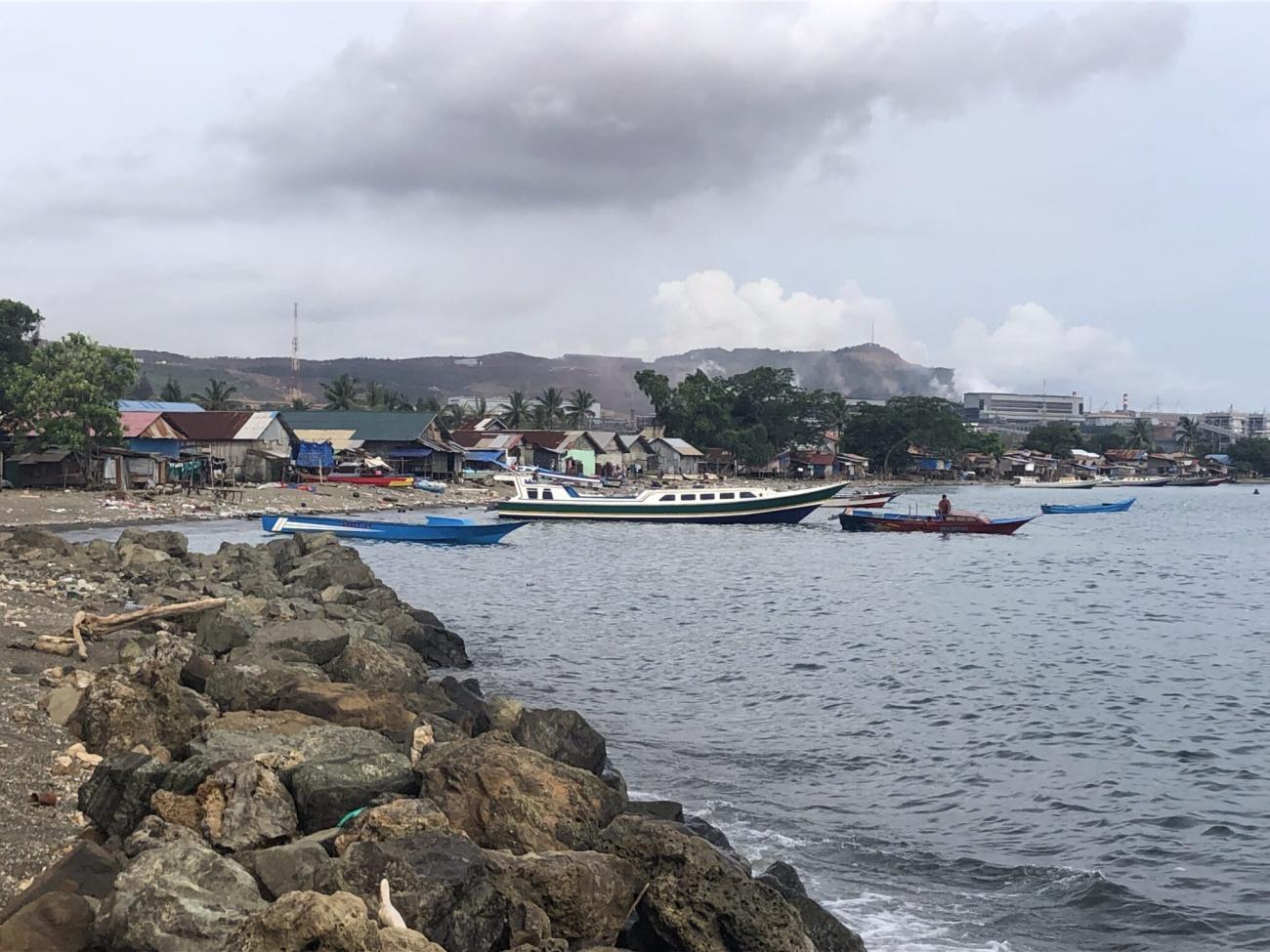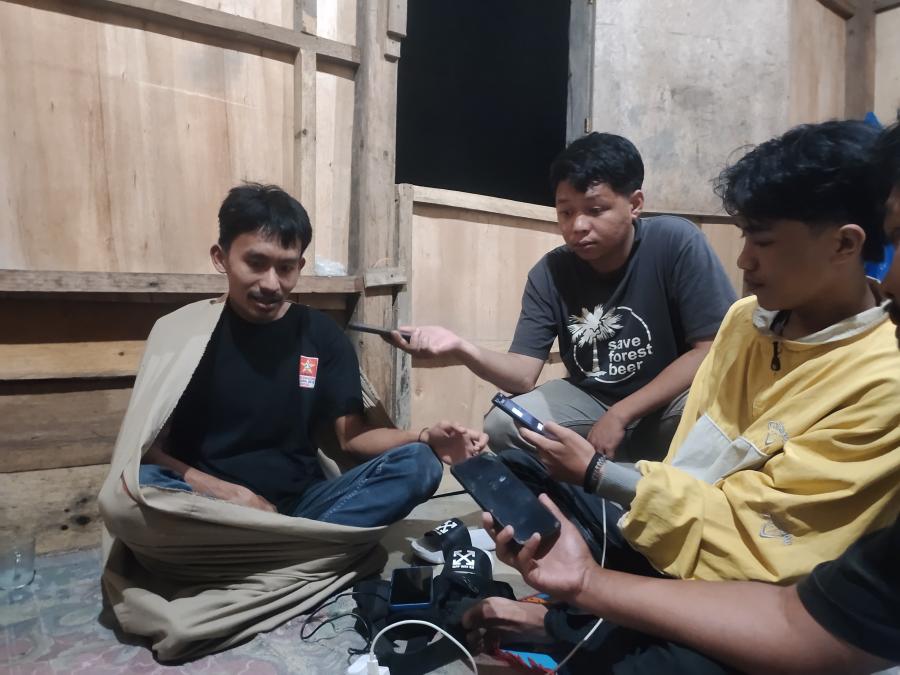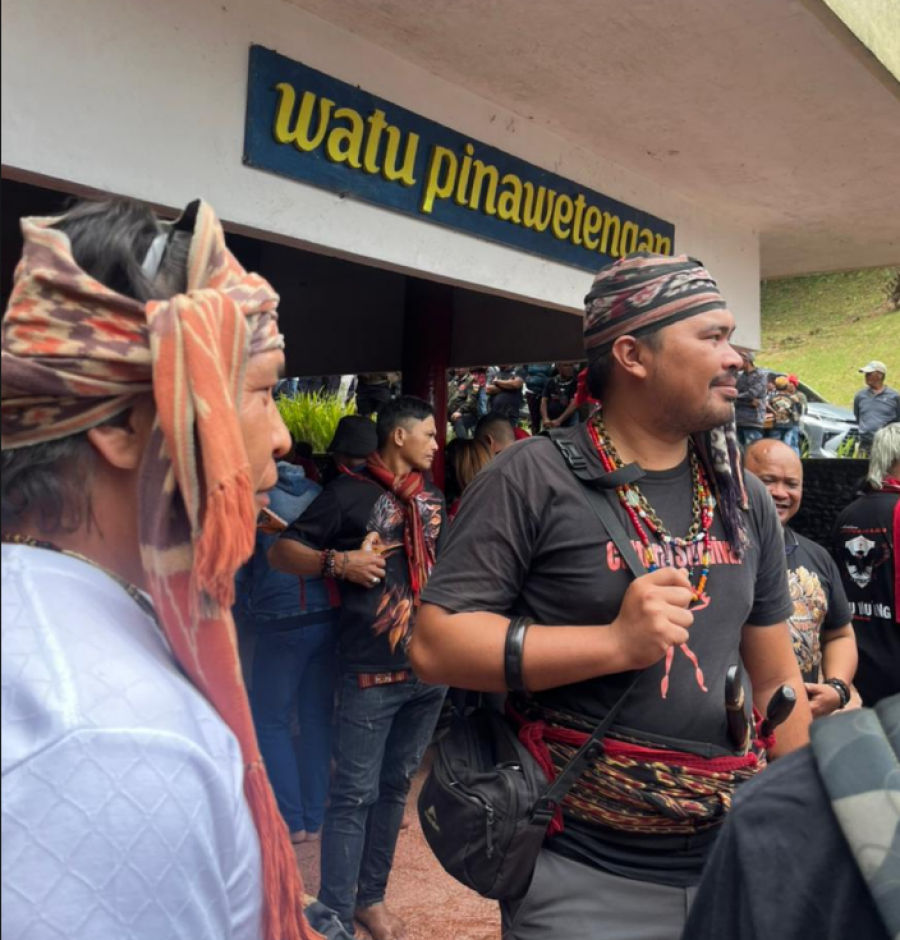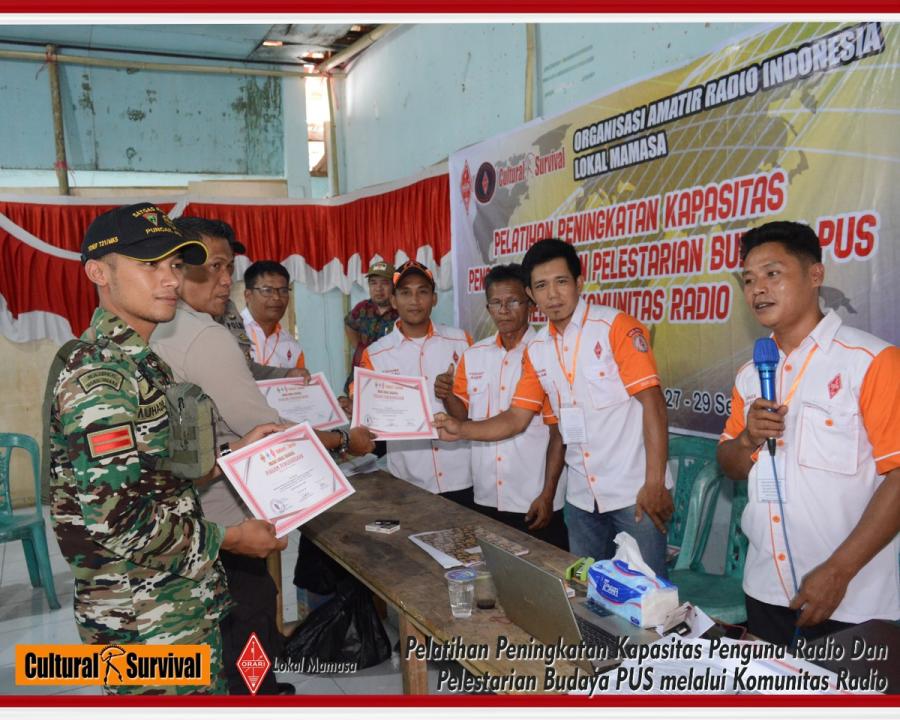
By Ellen Moore, Reposted from Earthworks
On Obi Island in Indonesia, residents in Kawasi Village, the ancestral land of the Tobelo Galela Indigenous Peoples, are calling for action from Harita Nickel. The company operates a large nickel mining and processing operation on the island near the village.
Residents say the company must respect their right to clean water and safe living conditions. Today, more than a dozen organizations are joining their call for Harita to take immediate action to address harms and ensure transparency.
These organizations are concerned by credible reports of pollution of drinking water from nickel operations. They are also concerned by multiple flooding events worsened or caused by mining infrastructure failings, and deforestation linked to mining. Residents also report intimidation of a community leader who is calling on the company to do more to address the harms.
In recent years, Harita has expanded operations. This means greater environmental impact, including greater amounts of mine waste. Nickel mining in Indonesia is surging, driven in part by the demand for high-quality nickel for use in electric vehicle batteries.
A need for corporate transparency
The facility was recently audited against the Initiative for Responsible Mining Assurance (IRMA) standard. Harita Nickel itself affirmed that improved transparency through the IRMA process is critical given the increased demand for nickel. Today, residents and allied organizations are highlighting the immediate importance of transparency and accountability to communities.
Flooding damages crops, homes, and water
The flooding events in Kawasi Village include a June 13, 2025 breach of sediment ponds holding water and mine waste. Community members and regional environmental organization, WALHI Maluku Utara, reported the partial collapse of the interior sediment pond wall in two places. Overflow from the sediment pond flooded people’s crops and homes, damaging belongings and harming water sources.
The sediment pond borders Kawasi Village and the Todoku River and, according to residents, was built on top of a wetland that served as a natural barrier to flooding and a natural filter for sedimentation and runoff from the mountains. Sediment ponds allow pollutants from mining to settle out of the water before discharge. Breaches can pose a serious risk to the health and wellbeing of residents.
The repeated flooding and risks posed by future infrastructure failures are a source of deepening trauma for Kawasi residents, who are also facing water and electricity shortages.
Carcinogens in drinking water
According to reporting from the Organized Crime and Corruption Reporting Project and the Gecko Project, the company constructed the sediment ponds in an attempt to control the persistently high levels of the carcinogenic chemical, chromium-6, in water originating from mining operations, which was also showing up in the drinking water in Kawasi Village. Reporting also shows that the ponds did not successfully reduce the levels of chromium-6 in water originating from mining operations as intended.
Pressure from security forces
Residents also report feeling intimidated and pressured by the company during negotiations related to relocation, which many residents of Kawasi Village oppose outright. According to residents, the company’s practice of partnering with the Indonesian security forces, as well as the use of private security during land relocation negotiations, generates undue pressure on them to leave Kawasi Village.
A call to action
Kawasi Village residents have the right to clean water and safe living conditions on their ancestral lands. Today, 15 allied organizations from around the world call on Harita to respect those rights and take immediate action.



